As Bitcoin reaches unprecedented heights, soaring past $120,000, a closer examination reveals that many prominent Bitcoin treasury firms are struggling. Despite the digital currency’s astounding growth, companies like (Micro)Strategy have seen their stock performance lag significantly. This raises critical questions: will these firms manage to rebound, or have they missed their opportunity for substantial gains?
Bitcoin Treasury Companies: An Overwhelming Accumulation of BTC in 2025
A recent analysis of the Top Public Bitcoin Treasury Companies shows that a staggering 79 public entities currently hold a minimum of 100 BTC each, combining for nearly one million Bitcoin valued at over $110 billion. This is especially impressive considering that the majority of these firms began their Bitcoin acquisition only a couple of years ago!
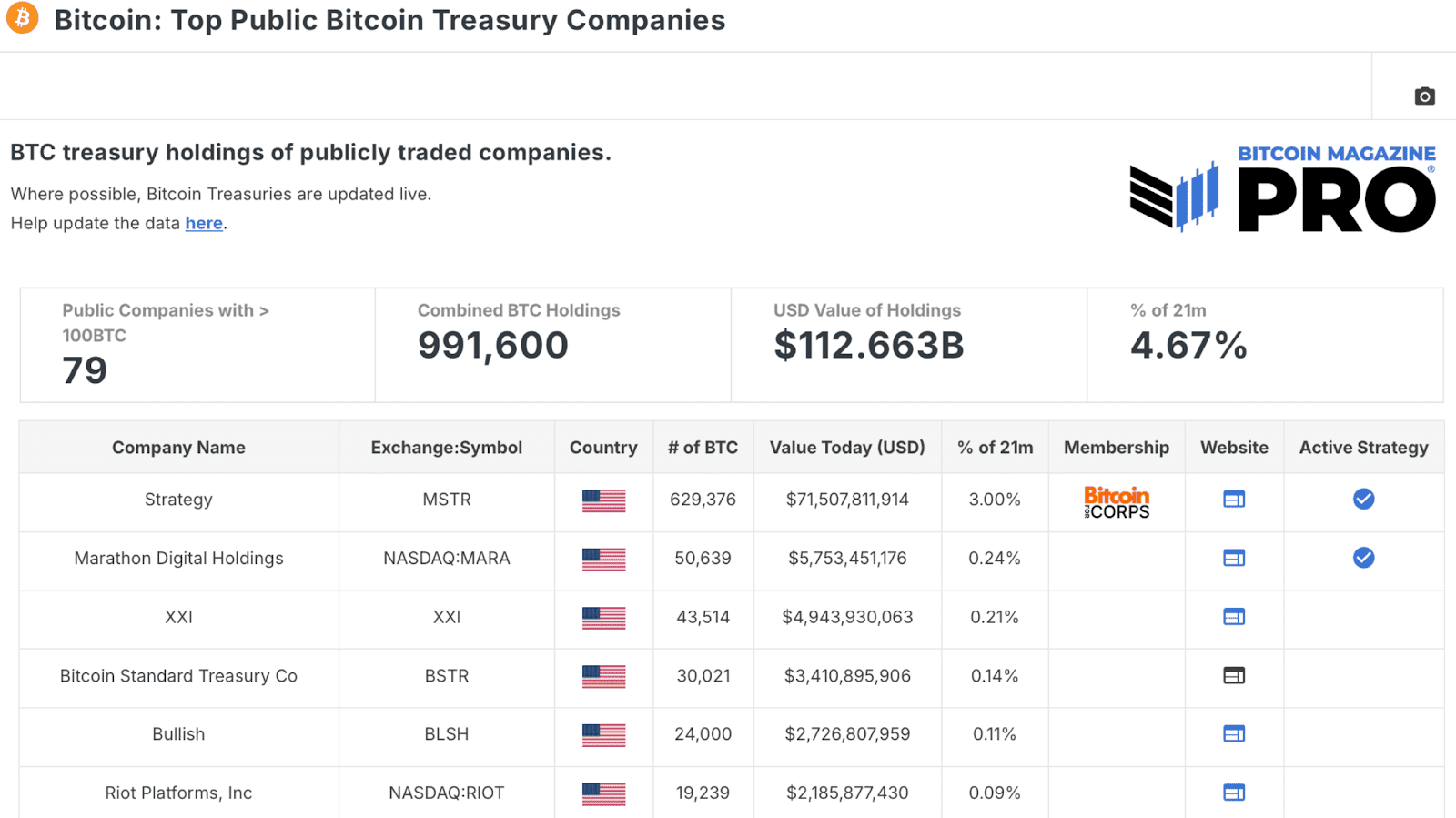
Among these firms, twenty-three are classified as Active Bitcoin Treasury Companies. Collectively, they are amassing Bitcoin through several financing mechanisms, holding a total of 723,000 BTC with (Micro)Strategy leading the pack with approximately 630,000 BTC.
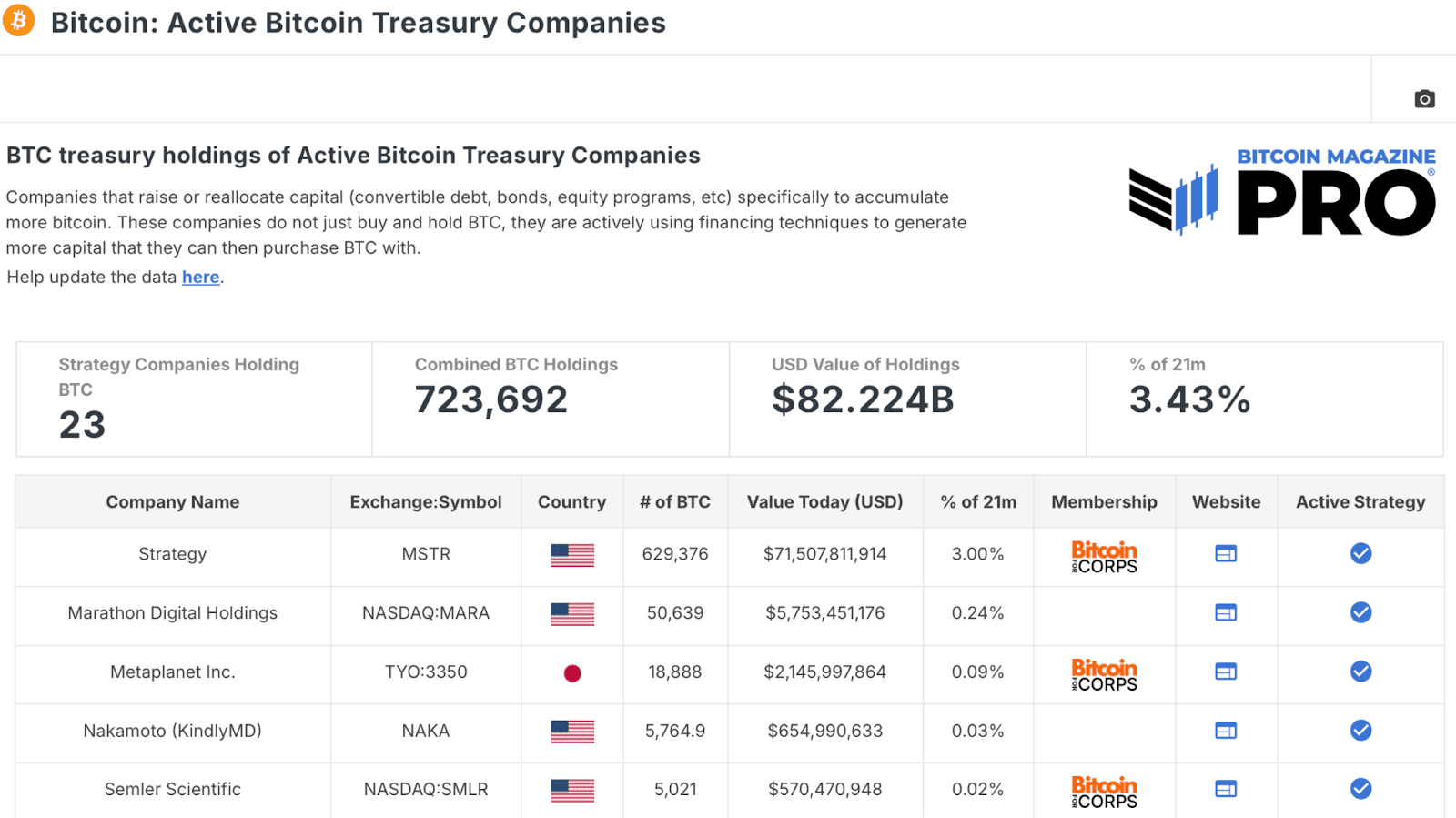
This substantial institutional acquisition signals Bitcoin’s growing importance in corporate financial strategies. However, investor sentiment is shifting, and doubts are surfacing regarding whether the companies’ stock performance can continue its upward trajectory.
Why Bitcoin Treasury Companies Are Experiencing Underperformance in 2025
(Micro)Strategy has often been viewed as the pioneering company in the Bitcoin treasury space, yet its stock price has failed to reflect the overall strength of Bitcoin recently. With Bitcoin briefly exceeding $124,000 before retreating, MSTR’s stock fell to around $330 from its previous high of $543. In recent months, nearly every prominent Bitcoin treasury company has significantly lagged behind Bitcoin’s performance.
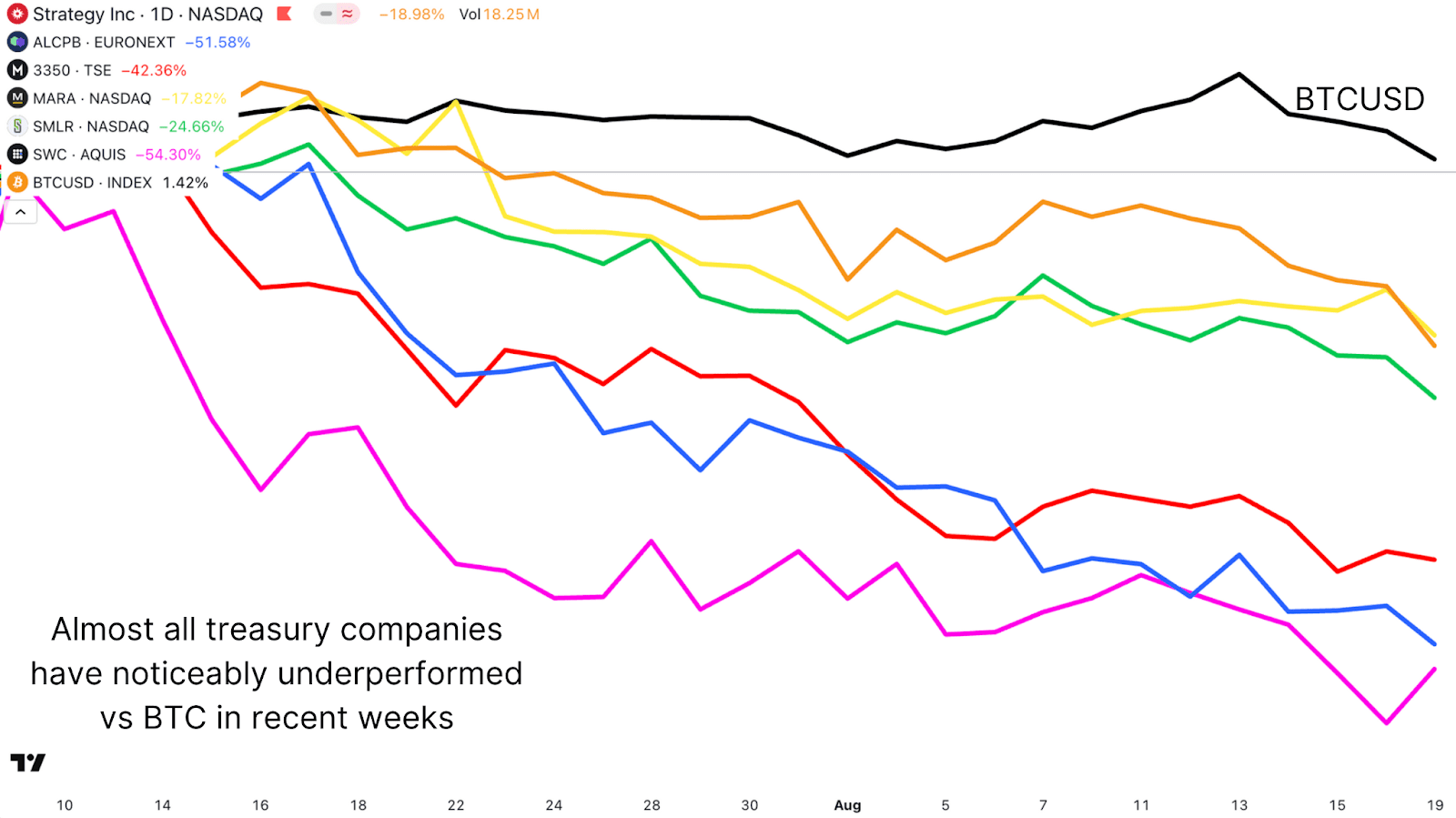
A significant factor in this underperformance is the slowdown in Bitcoin accumulation. (Micro)Strategy made substantial purchases in July 2025, but data shows that their Bitcoin Holdings Over Time indicate that the aggressive buying pace has noticeably dwindled compared to earlier years. As accumulation slows, the market may become reluctant to assign a premium to the company’s shares.
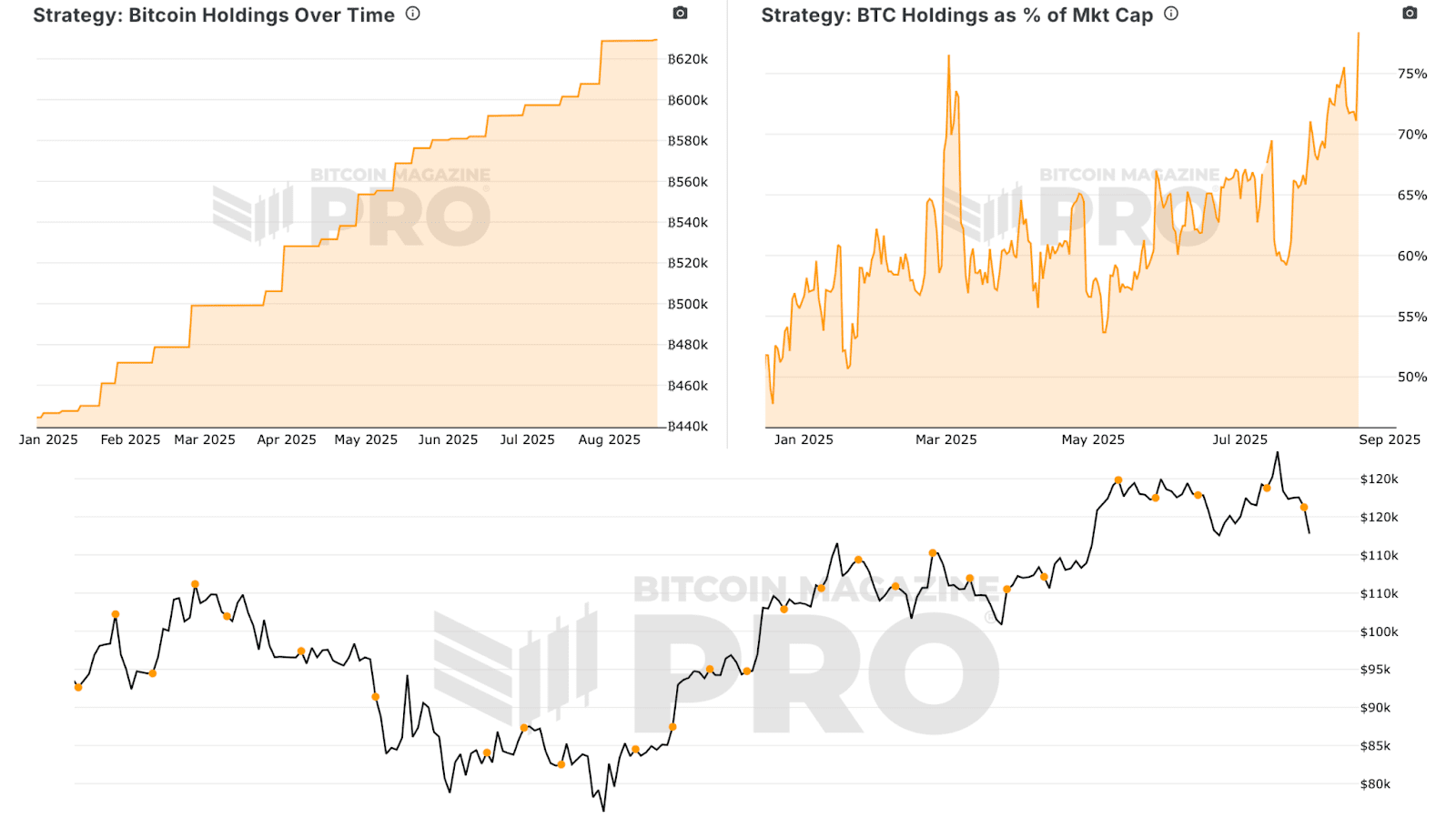
The Impact of Share Dilution on Bitcoin Treasury Companies’ Stock Performance
(Micro)Strategy regularly issues additional shares to acquire more Bitcoin. While this tactic increases the company’s overall holdings, it results in the dilution of existing shareholders and hampers the stock price. Between 2020 and 2025, (Micro)Strategy saw its diluted share count increase from roughly 97 million to over 300 million, indicative of the capital-raising efforts to expand Bitcoin reserves. While this strategy has been effective in increasing holdings, it has also limited the stock price’s potential ascent.
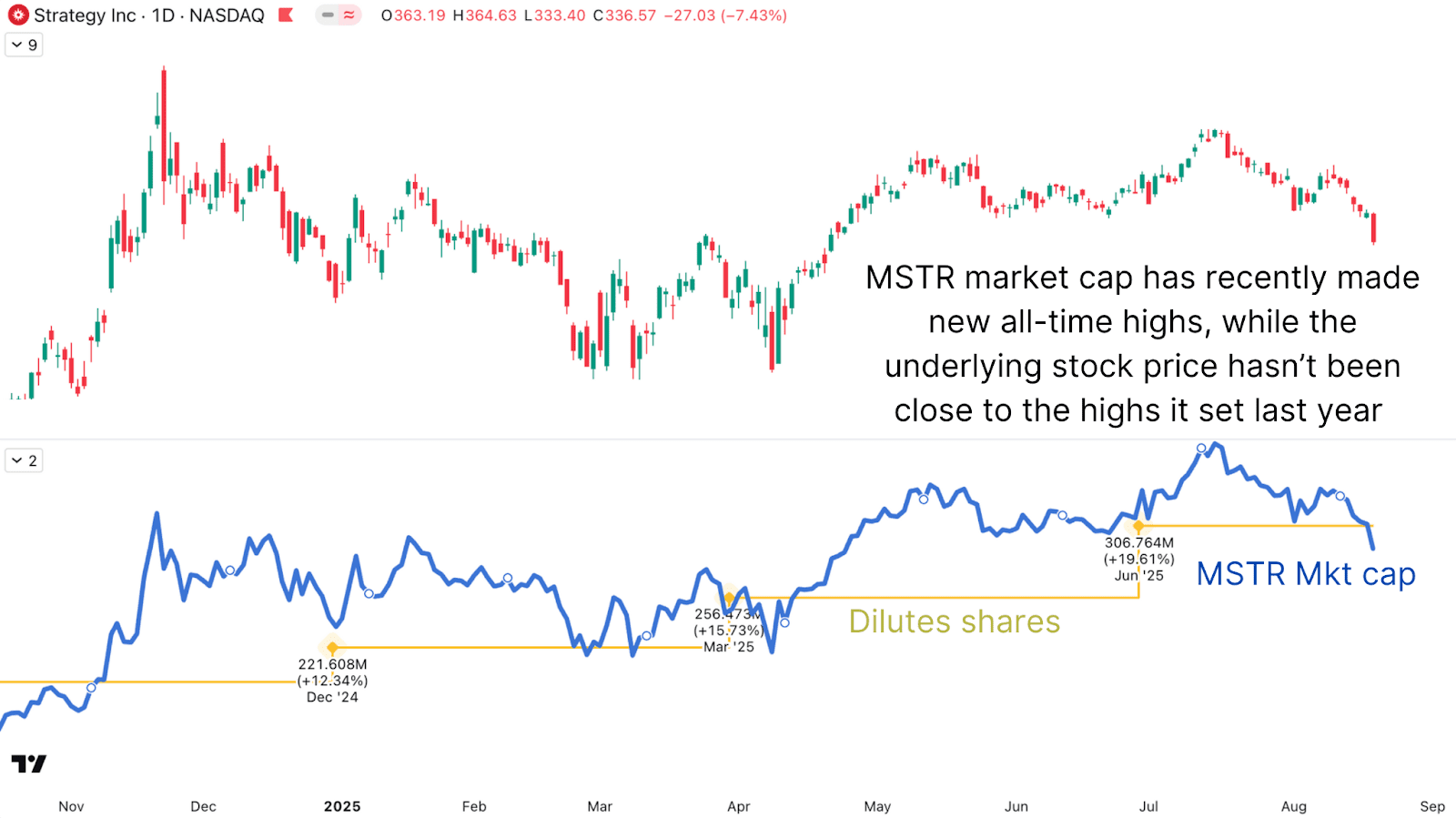
Focusing on market capitalization rather than just stock price tells a different story. The market cap actually reached an all-time high in July 2025, closely mirroring Bitcoin’s ascent. This juxtaposition highlights the detrimental implications of dilution when examining share prices alone.
Bitcoin Treasury Companies: NAV Premiums and Valuations in 2025
The net asset value (NAV) premium—essentially the amount investors are willing to pay for shares over the Bitcoin per-share worth—has notably decreased. Historically, (Micro)Strategy enjoyed a substantial NAV premium, serving as one of the few direct ways for investors to gain leveraged exposure to Bitcoin. However, as the landscape becomes crowded with new treasury companies and ETFs, this advantage is waning. The increasing number of firms adopting Bitcoin as a reserve asset suggests a trend toward a uniform NAV across the sector.
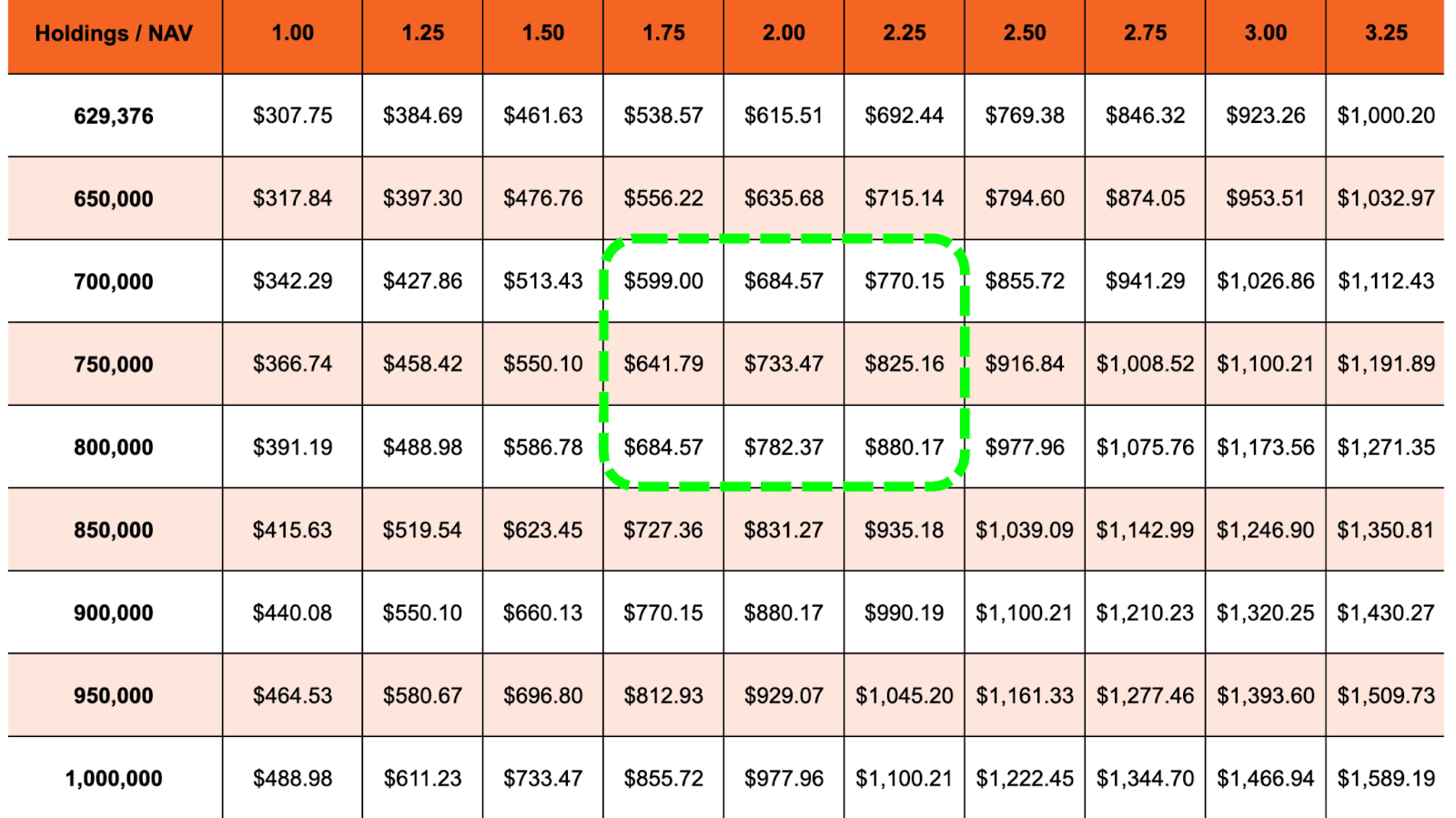
Given that treasury companies will experience boom and bust cycles—much like any other market—it’s worth noting that if Bitcoin climbs to $150,000, as predicted by (Micro)Strategy for the year’s end, the company’s fair share value could reach approximately $308 at a 1.00x NAV. However, with continuous accumulation, which could push BTC holdings to between 700,000 and 800,000, share values might soar between $600 and $880, especially if the company gains inclusion in the S&P 500 alongside a more consistent upward momentum in Bitcoin.
The Future of Bitcoin Treasury Companies: Investment Outlook for 2025
Although Bitcoin treasury firms like (Micro)Strategy have endured a period of underperformance despite Bitcoin’s surge to new heights, their pivotal role in accumulating vast amounts of Bitcoin cannot be ignored. While dilution, slowing accumulation, and increasing competition might weigh heavily on share prices, these companies still present potential upside relative to Bitcoin in certain market cycles.
Although there remains an asymmetric opportunity for investors, it’s essential to temper expectations. The once straightforward opportunities for outperformance reminiscent of early (Micro)Strategy days may have receded, replaced by a more mature, daunting landscape.
If you enjoyed this detailed exposition on Bitcoin dynamics, consider subscribing to Bitcoin Magazine Pro on YouTube for more expert analysis and insights!
For in-depth research, technical insights, and real-time market updates, visit BitcoinMagazinePro.com.

Disclaimer: This article is for informational purposes only and should not be considered as financial advice. Always conduct your own research before making investment decisions.












